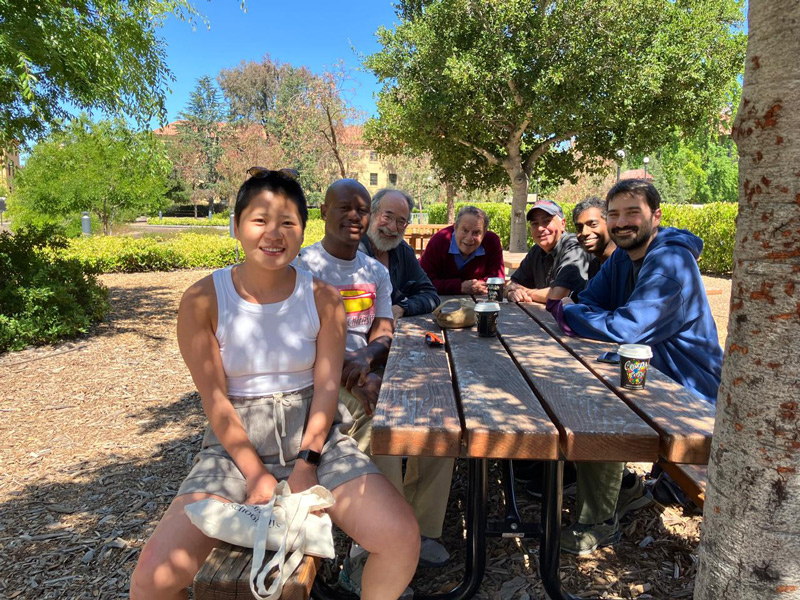Here's the preliminary program for the
20th Matching in Practice Workshop University of Messina, Department of Economics, Aula Magna 2, 15-16 May 2025
Thursday 15 May
9:00-9:15 Opening
9:15-11:00 Presentation session “Matching with externalities and equity concerns I”
Alexander Nesterov, Higher School of Economics “Reserves in Targeted Admissions: A Mechanism Design Approach”
Guillaume Haeringer, Baruch College “School Choice under Uncertainty: an Experiment”
Antonio Romero Medina, Universidad Carlos III de Madrid “Optimizing Daycare Enrollment: How To Avoid Early Applications”
11:00-11:15 Coffee break
11:15-13:00 Presentation session “Dynamic matching and incentives to participation I”
Duygu Sili, Università degli Studi di Messina “Costly Multi-Hospital Dynamic Kidney Exchange”
Subhajit Pramanik, Università degli Studi di Padova “A Dynamic Bargaining Framework for International Kidney Paired Exchange Program”
Özgür Yilmaz, Koç University “Dynamically Optimal Kidney Exchange”
13:00-14:00 Lunch
14:00-15:15 Seminar presented by the 2012 Nobel Prize in Economics Prof. Alvin Roth (Stanford University) “The Economics of Kidney Exchange: Kidneys and Controversies” (open to the public)
16:00-22:00 Departure to and walk across Taormina, with gala dinner to follow at Ristorante La Botte.
Friday 16 May
9:00-10:45 Presentation session “Matching with externalities and equity concerns II”
Flip Klijn, Institute for Economic Analysis (CSIC) and Barcelona School of Economics “Characterizing No-Trade-Bundled Top-Trading Cycles Mechanisms for Multiple-Type Housing Markets”
Péter Biró, Institute of Economics, HUN-REN KRTK “Ex-post Stability under Two-Sided Matching: Complexity and Characterization”
Emre Dogan, HSE University “Incentivizing Public Lawyers and Enhancing Fairness via Sorting in Adversarial Systems”
10:45-11:00 Coffee break
11:00-12:45 Presentation session “Dynamic matching and incentives to participation II”
Pietro Salmaso, Università degli Studi di Napoli Federico II “Rationalizable Conjectures in Dynamic Matching”
Johanna Raith, IHW – Leibniz Institute for Economic Research “College Application Choices in a Repeated DA Setting: Evidence from Croatia”
Sonal Yadav, University of Liverpool “Teacher Redistribution in Public Schools”
12:45-13:40 Roundtable “Organ-donor exchange programs, international comparison” Moderator Prof. Antonio Nicolò (Università degli Studi di Padova), with the participation of Prof. Alvin Roth (Stanford University) and Dr. Giuseppe Feltrin (National Transplant Center)
13:40-14:30 Farewell lunch.
The MiP Workshop is an annual meeting organized by the Matching in
Practice network of European researchers working in the research field
of Matching Theory and Market Design.
This year’s MiP workshop is
funded by the following projects: Prin2022 “Externalities and fairness
in allocations and contracts” (CUP J53D23004650006 – ID 2022HLPMKN) and
PrinPNRR2022 “Incentivizing participation of compatible pairs in Kidney
Paired Exchange Programs” (CUP J53D23015460001- ID P2022P5CHH), both
funded by the European Union – Next Generation EU.
The Organizing
Committee includes the Messina Unit Manager of the aforementioned
projects, Prof. Antonio Miralles Asensio, and the Principal
Investigators of both funding projects, respectively Prof. Maria
Gabriella Graziano (University of Naples Federico II) and Prof. Antonio
Nicolò (University of Padua). External members of the Scientific
Committee are Prof. Caterina Calsamiglia (IPEG and ICREA, Spain), Prof.
Rustam Hakimov (Université de Lausanne, Switzerland) and Prof. Péter
Biró (Hungarian Academy of Sciences, Hungary).




 Lightning Round Session
Lightning Round Session

